By Mary Lyn Fonua
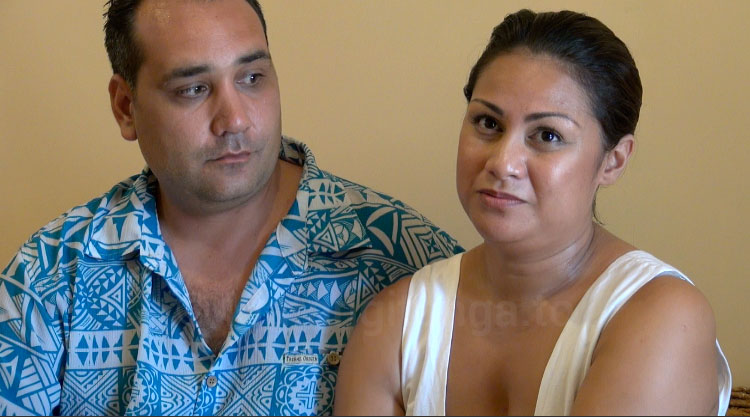
As Zika anxiety grows among pregnant women in Tonga, some are choosing to leave the country - like a former Miss Heilala who fears that if she gets bitten by a mosquito and catches Zika during pregnancy it might harm her unborn child - and that means it's too risky for her to stay.
“We are pretty scared about the fact that [Zika] does have a link to birth defects...and I don't want to get it,” said Phyllis Sullivan, who is in the first trimester with her third child and will be on a flight out of Tonga today with her children aged nine and two years.
Phyllis and her husband Robert said yesterday they had just found out that Phyllis was pregnant and then heard about Zika virus here in Tonga. They watched a lot about Zika on news, where they learned it might cause Microcephaly, a head deformation in newborns. It is suspected that Zika causes the baby's brain to shrink while in the womb.
"I'm horrified. I can't wait to go...I'm really scared. I think for pregnant women, especially here in Tonga, that you need to do everything within your power to be okay and, if you can, get out of here until it is safe to come back," said Phyllis.
Their decision was big and difficult. Phyllis (née Tohi), who was Tonga's Miss Heilala 2002-03, is a beauty therapist. She started her own business "Island Time Spa" only a year ago, and was looking forward to working through until her last trimester. Now she will have to close her spa while her husband, a local businessman, will stay in Tonga to support the family abroad - and it means they'll have one paycheck instead of two.
"I'm really sad to do that, but my child's life is more important to me and I need to make this move and make sure everything is all right before I think about coming back and starting over," said Phyllis.
"I've been for two scans and seen a doctor twice and the doctor hasn't advised me to do any blood tests yet, so I'm hoping that as soon as we get to New Zealand we can arrange that...it will give me peace of mind...fingers crossed!" she said.
Robert said there was not a lot of information in Tonga at the moment with regards to what to do about Zika and how it affects people.
"A mosquito can just come and bite you whenever, so this is quite a big issue and the fact that it could have flow-on for years to come, affecting babies that aren't even born yet, I think this could have massive implications," said Robert.
The family who are dual Tongan-New Zealand citizens appreciated that they are among the lucky few who can leave, but it's an option that most other pregnant women in Tonga don't have.
Zika outbreak
Detection of Zika, is new in Tonga, with the first two cases of the outbreak confirmed by laboratory testing this year. The Ministry of Health declared an epidemic last week knowing that vector borne disease can spread rapidly through a community. In 2014 during the Cyclone Ian recovery, the Chikungunya fever also new to Tonga rapidly clocked up over 10,000 cases.
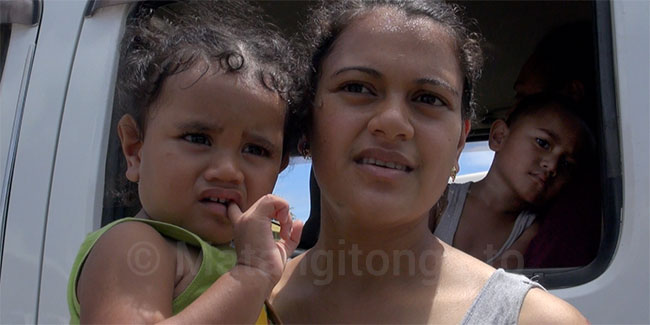
At Vaiola Hospital on Friday, February 5, some of the pregnant women who had attended a clinic for pregnancy blood work believed they were not tested for Zika virus infection.
A young mother Kilisitina Matafahi (24) from Folaha said she was seven months pregnant and was concerned. "No, I haven't been tested. The truth is I don't know for sure about this disease. I only know it's spread by mosquitoes but I don't know what kind of mosquito, like the dengue fever. I don't know for sure," she said.
Mele Manunu'a and Malinoa Fainu from Ha'ateiho were aware of Zika. They were afraid, said Malinoa.
"I heard on TV of the precautions about this disease. I'm afraid that I might catch it in my condition. I'm pregnant. It's a precaution to be more aware so that I may not catch this disease," she said.
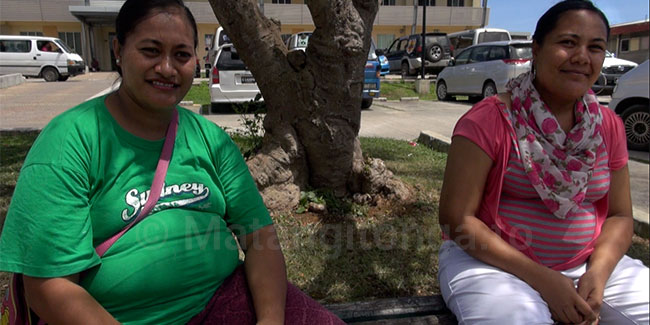
Few tests
Tonga's Director of Health, Dr Siale 'Akau'ola said last week they had five cases of laboratory confirmed Zika and over 200 or more suspected cases.
"We did not test everyone - of those 200 we only tested nine. It is just the cost, you know you can't test everyone. But once you have at least two, you don't really need to test all, unless they are pregnant or really sick with complications," he said. They had not seen any case in Tonga yet of the so-called Guillain-Barre complication that affects the nerves.
Selected blood tests for Zika are being sent to Tahiti two or three times a week at the moment, but the majority of Zika cases are being diagnosed through signs and symptoms.
"But 80% of them don't have much symptoms, so I'm assuming that we have another 80% out there in there community who don't report to the hospital," Dr 'Akau'ola said. "I am very concerned about the impact on pregnant women."
The Ministry of Health will not know the full impact of this current outbreak until the end of the year when babies are delivered from mothers who may have been exposed to the Zika virus.
Meanwhile, Tonga's Public Health service is maintaining a programme of spraying school grounds and classrooms to control mosquitoes. The Australian Government has pledged funds to the Pacific Islands to help with preventative measures in the fight against Zika.
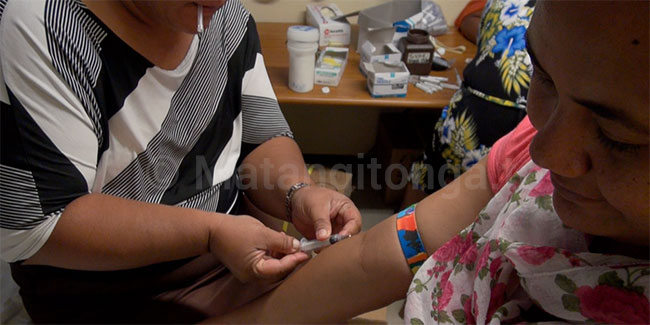
Mosquito
Unlike the often severe symptoms of Chikungunya fever, the symptoms of a Zika virus infection are milder and may go unnoticed. People with suspected cases of Zika complain of a bad headache, pink eyes, a fever that lasts for a day or so, followed by a slight red rash, and other signs such as body aches. There's no cure, and Tongan patients are being advised to take paracetamol for the fever and to drink a lot of water.
The Zika virus, which is spread by the Aedes aegypti mosquito, is strongly suspected to be causing a new wave of microcephaly cases in Brazil. Babies born with the birth defect have smaller heads and brains that aren't fully developed, which can result in life-long developmental problems. Microcephaly can result in a range of outcomes, from no issues at all to severe intellectual disability and developmental delays.
Dengue, Chikungunya and now Zika are spread in tropical countries by the same mosquito, one with distinctive white marks on its legs, the Aedes aegypti, which is found in the Pacific Islands and Tonga. Only the female bites for blood and can bite and spread infection all year long and at any time of day. They breed in stagnant water. Wearing long sleeved clothing and trousers, and using mosquito netting over beds if the room is not screened, are useful preventative measures.
The mosquito is hard to eradicate. It's known that the lifespan of the adult mosquito is two to four weeks but the eggs can be viable for over a year in a dry state, which allows the mosquito to re-emerge after a cold winter or a dry spell.
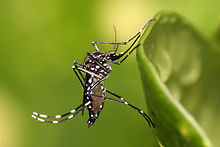
More information about Zika:
Zika In French Polynesia: It Struck Hard In 2013, Then Disappeared
9 Important Questions About Zika Virus, Answered
Zika Virus Is At Least 50 Years Old. Here's Why You're Only Hearing About It Now



